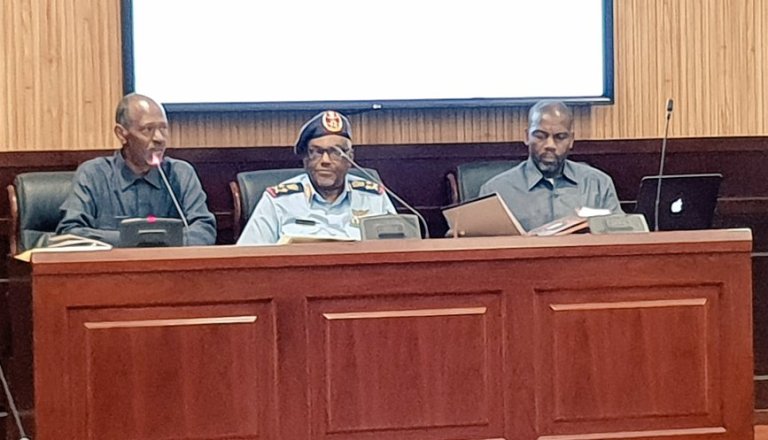South Sudan Joint Defence Board holds its first meeting

November 25, 2018 (KHARTOUM) – The South Sudanese military leaders of the signatories to the revitalized peace agreement held on Sunday the first meeting of the Joint Defence Board (JDB).
In line with the revitalized peace pact, the JDB is composed of the Chiefs of Staff and Directors General of National Security Service, Police, and all other organized forces. The heads of the armed opposition groups will continue as Commanders-in-Chief of their forces until the end of the Pre-Transitional Period or until the end of the unification process.
The JDB meeting, which was held in Khartoum, was chaired by Sudanese General Isam al-Din Mubarak while the IGAD Special Envoy Ismail Wasi delivered the opening speech.
The meeting discussed the regulations and timetables before to launch the implementation process of security arrangements including troops disengagement, cantonment, and joint training before the formation of unified forces.
Gen Gabriel Jok Riak South Sudan army chief of staff stated that another meeting will be held on Monday to discuss the references to the security arrangements agreed between the parties, adding that the meetings will continue for two days.
In a Tweet posted on Sunday, the CTSAMVM welcomed “the formation of the Joint Defence Board and stands ready to support the Parties by effectively monitoring the Permanent Ceasefire and Transitional Security Arrangements as agreed in the R-ARCSS”.
In a report to the Revitalized Joint Monitoring and Evaluation Commission (R-JMEC) Plenary meeting in Addis Ababa on 19 November, the ceasefire monitoring and security arrangements body called for the operationalisation of the different security bodies.
“The key factor preventing implementation of the disengagement process is the delay in the formation of security mechanisms, namely the Joint Defence Board (JDB) and the Joint Monitoring Ceasefire Commission (JMCC) and their subordinate bodies,” reads the report.
(ST)
